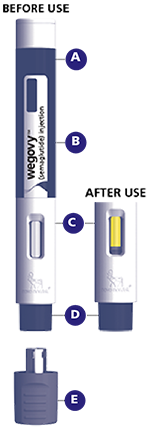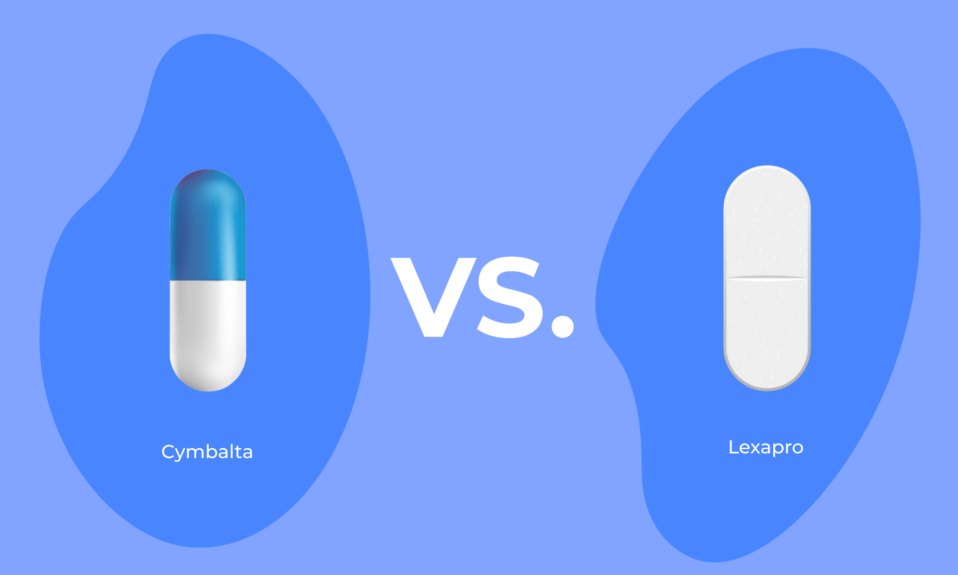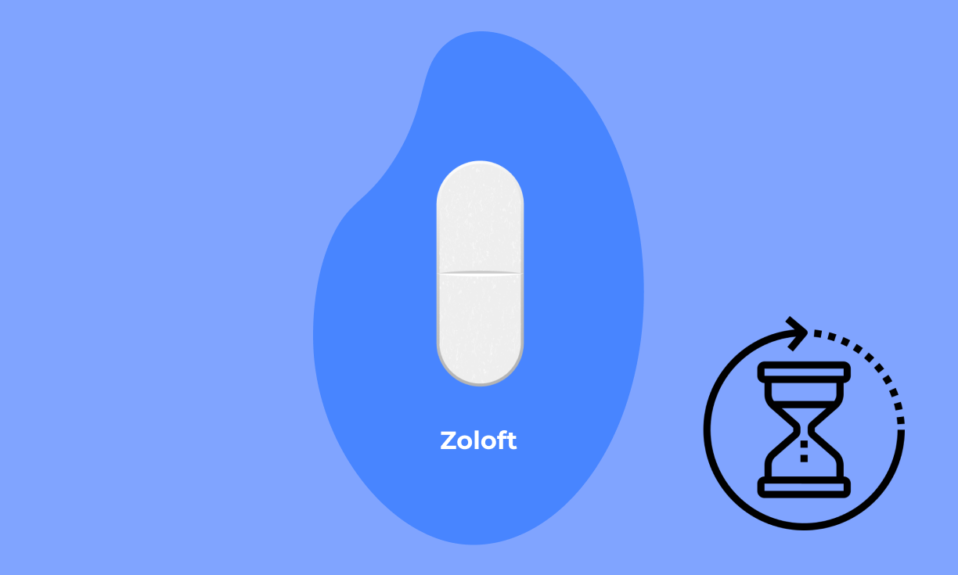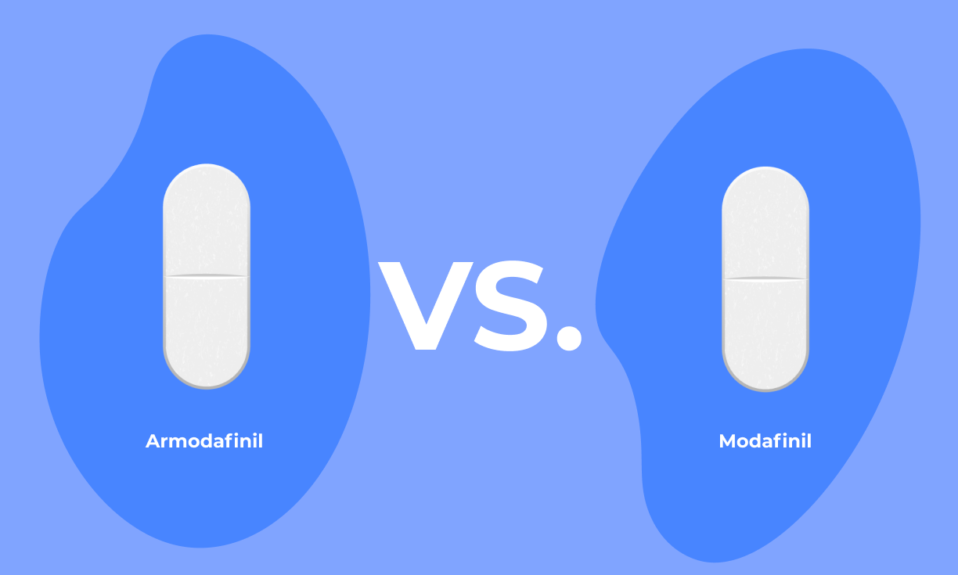Table of Contents Hide
- What is Wegovy?
- How to Take Wegovy for Weight Loss
- Risks and Side Effects of Wegovy for Weight Loss
- Does Wegovy really work for weight loss for everyone?
- How much weight can I expect to lose while taking Wegovy?
- How Does Wegovy Compare to Other Weight Loss Drugs?
- The Cost of Wegovy for Weight Loss
- Who should not use Wegovy?
- Conclusion
- Frequently Asked Questions
- How does Wegovy work?
- What are the potential side effects of taking Wegovy?
- Is Wegovy safe for long-term use?
- Can I take Wegovy if I have pre-existing medical conditions or take other medications?
- How do I take Wegovy?
- Is Wegovy covered by insurance?
- Can Wegovy be used in combination with other weight loss treatments or programs?
- How much weight can I expect to lose with Wegovy?
- References
Wegovy is a prescription medication that is used to help with weight loss. It was approved by the US Food and Drug Administration (FDA) in June 2021 for long-term weight management in adults and is gaining in popularity as a weight loss treatment. But, like any medication, there are pros and cons associated with it.
Over 42.5% of U.S. adults aged 20 and over have obesity, including 9.0% with severe obesity. Experts recommend diet and exercise to combat obesity but they may not be effective or sufficient for a significant percentage of the individuals affected by obesity. Today, a growing number of medications, such as Wegovy, are available to help people with qualifying medical conditions lose weight and improve their health.
In this article, we will look at the benefits and side effects of Wegovy for weight loss, how it compares to other options, the cost, and more.
What is Wegovy?
Wegovy is a prescription medication that is used to help with weight loss. It is an injectable medication that is taken on a regular basis.
Wegovy contains semaglutide, a glucagon-like peptide-1 (GLP-1) receptor agonist. GLP-1 receptor agonists are a class of drugs that mimic the effects of the hormone GLP-1.
GPL-1 hormone is naturally produced by the body. It is released by the intestinal L cells in response to food intake. It stimulates insulin secretion, suppresses glucagon secretion, slows gastric emptying, and increases feelings of satiety, thereby reducing food intake and promoting weight loss.
By mimicking the effects of GLP-1, Wegovy helps to lower blood sugar levels and reduce appetite, which can lead to weight loss.
Wegovy is usually prescribed as an add-on to a healthy lifestyle and calorie-reduced diet for people with a body mass index (BMI) of 30 or higher.
How to Take Wegovy for Weight Loss
Wegovy is a once-weekly injectable medication. It is typically given as a subcutaneous injection (under the skin) in the stomach, thigh, or upper arm. You can take Wegovy with or without food.
The dose of Wegovy that you will be prescribed will depend on your individual needs and will be determined by your doctor. Wegovy comes in 5 different dose strengths. The recommended starting dose is 0.25 mg once weekly, which may be increased to a maximum dose of 2.4 mg once weekly. Each dose comes in a different color pen.
A. Expiration (EXP) date: Located on the back of your pen.
B. Dose: Always check that you have the medication and dose your health care provider prescribed.
C. Pen window
BEFORE USE: Check that Wegovy® is clear and colorless. Air bubbles are normal and do not affect your dose. Check that the yellow bar has stopped moving to make sure you received your full dose.
D. Needle cover
BEFORE USE: Needle is hidden inside.
AFTER USE: Needle cover locks after use.
E. Pen cap: Remove it just before you are ready to inject.
To ensure that your Wegovy pen is in optimal condition, it’s important to store it properly. Wegovy pen should be stored in the refrigerator at temperatures between 36°F to 46°F (2°C to 8°C).
However, before removing the cap, the pen can be stored at temperatures between 46°F to 86°F (8°C to 30°C) for up to 28 days. Just be sure to keep the pen in its original carton to protect it from light. It’s important to note that you should never freeze your Wegovy pen.
If the pen has been frozen, exposed to light or temperatures above 86°F (30°C), or has been out of the refrigerator for 28 days or longer, it’s best to dispose of it and get a new one.
Before using Wegovy, you should read the patient information leaflet that comes with the medication. It contains detailed instructions for using the medication, including information on how to prepare and administer the injection.
Risks and Side Effects of Wegovy for Weight Loss
The most common side effects of Wegovy may include nausea, diarrhea, vomiting, constipation, stomach (abdomen) pain, headache, tiredness (fatigue), upset stomach, dizziness, feeling bloated, belching, gas, stomach flu, and heartburn.
It is important to note that these side effects may not occur in everyone and most are mild to moderate and temporary. You should always consult with your doctor if you have any concerns about the side effects of Wegovy or any other medication you are taking.
Wegovy may cause some serious side effects, such as:
- Inflammation of the pancreas (pancreatitis): severe pain in your stomach area that will not go away, with or without vomiting.
- Gallbladder problems, including gallstones. Symptoms, such as pain in your upper stomach (abdomen), fever, yellowing of the skin or eyes (jaundice), or clay-colored stools.
- Increased risk of low blood sugar (hypoglycemia) in patients with type 2 diabetes, especially those who also take medicines for type 2 diabetes such as insulin. Signs and symptoms of low blood sugar may include dizziness or light-headedness, blurred vision, anxiety, irritability or mood changes, sweating, slurred speech, hunger, confusion or drowsiness, shakiness, weakness, headache, fast heartbeat, or feeling jittery.
- Kidney problems (kidney failure). In people who have kidney problems, diarrhea, nausea, and vomiting may cause a loss of fluids (dehydration) which may cause kidney problems to get worse. It is important for you to drink fluids to help reduce your chance of dehydration.
- Serious allergic reactions. Stop using Wegovy and get medical help right away, if you have any symptoms of a serious allergic reaction, including swelling of your face, lips, tongue, or throat; problems breathing or swallowing; severe rash or itching; fainting or feeling dizzy; or very rapid heartbeat.
- Change in vision in patients with type 2 diabetes.
- Increased heart rate. Wegovy can increase your heart rate while you are at rest. Tell your healthcare provider if you feel your heart racing or pounding in your chest and it lasts for several minutes.
Check out other Drug vs. Drug articles here.
Does Wegovy really work for weight loss for everyone?
The effectiveness of Wegovy (Semaglutide) was evaluated in three separate clinical trials for people with Type 2 Diabetes, Early Diabetes, and Obesity. Participants with Type 2 Diabetes and Early Diabetes received a 1.0 mg, once-weekly, subcutaneous or oral dose of semaglutide. Participants in the Obesity trial received a 2.4 mg, once-weekly, subcutaneous dose of semaglutide.
The results from all three trials demonstrated the superior weight loss benefits of semaglutide compared to placebo and other antidiabetic medications. This led to the FDA approval of Wegovy (semaglutide) as a treatment option for weight loss.
However, it is important to remember that Wegovy is most effective when used in combination with a healthy lifestyle and calorie-reduced diet.
How much weight can I expect to lose while taking Wegovy?
The amount of weight loss that a person can expect to experience while taking Wegovy will vary depending on several factors, including the individual’s starting weight, diet, and exercise habits.
In clinical trials, patients taking Wegovy in combination with a reduced-calorie diet and increased physical activity lost an average of 8-12% of their body weight over 68 weeks. Some patients lost as much as 20% of their body weight.
It is important to note that weight loss is not the only benefit of Wegovy. The medication can also improve blood sugar control and lower the risk of diabetes-related complications. Additionally, weight loss can also lead to the improvement of other health conditions like blood pressure, cholesterol, etc.
It is important to keep in mind that, weight loss is not the only goal, it’s important to maintain the weight loss and improve overall health.
How Does Wegovy Compare to Other Weight Loss Drugs?
Wegovy is one of many options available for people looking to lose weight. FDA has so far approved the following drugs for weight loss:
- Bupropion-naltrexone (Contrave)
- Liraglutide (Saxenda)
- Orlistat (Xenical, Alli)
- Phentermine-topiramate (Qsymia)
- Semaglutide (Wegovy)
- Setmelanotide (Imcivree)
It is important to speak to a doctor about the best option for each individual. Generally speaking, weight loss medications are most effective when used in combination with a healthy lifestyle and calorie-reduced diet.
Other non-medication options such as meal replacements or surgery can also be effective, depending on the individual.
Wegovy vs Saxenda for Weight Loss
In 2014, Saxenda (liraglutide) became the first medication of its kind to be approved for weight loss in people without diabetes. Six years later, the FDA approved Wegovy (semaglutide).
A clinical trial that included 338 participants, overweight adults or adults with obesity without diabetes, assessed the effect of once-weekly subcutaneous semaglutide (Wegovy), 2.4 mg, vs once-daily subcutaneous liraglutide (Saxenda), 3.0 mg, on weight loss when administered in addition to counseling for diet and physical activity
The findings indicated that individuals taking Wegovy, in conjunction with a healthy diet and regular physical activity, experienced a substantial reduction in body weight compared to those on Saxenda. On average, the Wegovy group lost about 16% from baseline (their starting weight) to 68 weeks, whereas the Saxenda group lost approximately 6.5%.
Previous trials have shown similar results. Another trial of Wegovy, which included nearly 2,000 participants, found an average weight loss of nearly 15%. A Saxenda trial with over 3,700 participants recorded an average weight loss of around 8%.
In addition to the difference in weight loss experienced by the two medications, dosing is different too. Saxenda is administered daily unlike Wegovy which is once a week. Saxenda’s starting dose is 0.6 mg per day for 1 week. Patients increase the dose by 0.6 mg each week until the full maintenance dose of 3 mg is reached.
Wegovy vs Rybelsus for Weight Loss
Rybelsus is semaglutide in oral form. It is the first oral GLP-1 treatment approved for people with Type 2 Diabetes.
Rybelsus is available as an oral tablet formulation in doses of 3 mg, 7 mg, and 14 mg.
Rybelsus is not a weight-loss drug. It has been approved by the FDA for the treatment of Diabetes only, however, it has been observed to cause significant weight loss.
In a clinical trial, Rybelsus (oral semaglutide) was found to be more effective in weight loss and led to greater reductions than placebo or other similar drugs. However, subcutaneous semaglutide (Wegovy) is found to be more effective for weight loss than oral semaglutide (Rybelsus). In a comparative study, Rybelsus was associated with a mean weight loss of 4.4% of the body weight. Wegovy, on the other hand, resulted in about 16% weight loss.
The Cost of Wegovy for Weight Loss
Wegovy has an average wholesale price (AWP) of about $1,600. The AWP is the published list price for a drug sold by wholesalers to retail pharmacies and nonretail providers.
Your cost of Wegovy would vary depending on insurance coverage, the pharmacy, and the dosage. In general, it is more expensive than diet pills or meal replacements, but cheaper than surgery. It is also worth noting that the cost of Wegovy can be offset by the cost of medical expenses associated with obesity, such as doctor’s visits and medications.
Commerical/Employer Insurance Coverage: To find out if your insurance covers Wegovy, you should call the number on the back of the insurance card. Your insurance may require prior authorization for it. Prior authorizations (PAs) are required by some insurance plans to cover certain medications. If a PA is required, your healthcare provider will need to submit a form and supporting documentation to your insurance company to seek approval for Wegovy. You can reach out to your healthcare provider’s office and request that they initiate a PA.
Medicare Coverage: Unfortunately, Medicare does not provide coverage for medications used in the treatment of obesity. However, some select Medicare supplement and Medicare Advantage plans, available to retirees, do offer coverage. If you have one of these plans, please check with its administrator.
Medicaid Coverage: Each state determines which prescription drugs are covered by Medicaid. To find out if medications for weight management and obesity are covered, contact the Medicaid office in your state.
Manufacturer savings cards: Manufacturer copay cards are savings offered directly from the drug manufacturer—typically on brand-name medications. Generally, you must have private or commercial insurance with coverage to qualify for a savings card. These cards can be beneficial if insurance covers part of the medication’s cost. Novo Nordisk, the manufacturer of Wegovy, offers a Savings Card that can be accessed here: Wegovy Savings Offer.
Who should not use Wegovy?
Wegovy (Semaglutide) is contraindicated for individuals with a personal or family history of medullary thyroid carcinoma (MTC), a type of thyroid cancer, or in individuals with Multiple Endocrine Neoplasia syndrome type 2 (MEN 2), a genetic disorder that affects the endocrine glands, which are responsible for producing hormones.
Additionally, it should not be used in individuals with a prior serious hypersensitivity reaction to semaglutide or any of its excipients (inactive ingredients).
Conclusion
Wegovy is a prescription medication that is used to help with weight loss. It works by mimicking the effects of GLP-1, which is responsible for our hunger sensations. It can be an effective option for people who are looking for an injectable medication to help with weight loss, but it is important to speak to a doctor about the best option for each individual. Additionally, it is important to follow a healthy lifestyle and calorie-reduced diet to maximize the effectiveness of Wegovy. Ultimately, Wegovy can be a safe and effective option for weight loss, but it is important to consider the risks and side effects before starting it.
Frequently Asked Questions
How does Wegovy work?
Wegovy is a medication that contains Semaglutide, a glucagon-like peptide-1 (GLP-1) receptor agonist. GLP-1 receptor agonists are a class of drugs that mimic the effects of the hormone GLP-1, which is naturally produced by the body.
When GLP-1 is released, it stimulates the pancreas to produce insulin and suppresses the production of glucagon, a hormone that raises blood sugar levels. It also slows down digestion and reduces appetite. By mimicking the effects of GLP-1, Wegovy helps to lower blood sugar levels and reduce appetite, which can lead to weight loss.
What are the potential side effects of taking Wegovy?
- Common side effects included Gastrointestinal symptoms such as nausea, vomiting, diarrhea, and stomach pain, Constipation, Headache, Dizziness or lightheadedness, Fatigue, and Injection site reactions.
- Hypoglycemia: This is a serious side effect of Wegovy, which occurs when the blood sugar levels drop too low. Symptoms include shakiness, sweating, confusion, and difficulty speaking.
- Pancreatitis: This is a severe side effect of Wegovy and can occur as inflammation of the pancreas, causing severe abdominal pain and vomiting.
It is important to note that these side effects may not occur in everyone and most are mild to moderate and temporary. You should always consult with your doctor if you have any concerns about the side effects of Wegovy or any other medication you are taking.
Is Wegovy safe for long-term use?
Wegovy is a medication that has been approved by the FDA for the treatment of obesity in adults, and it has been studied in clinical trials for up to 68 weeks. However, the long-term safety and effectiveness of Wegovy have not been fully established.
As with any medication, there may be risks associated with long-term use. It is important to discuss the potential risks and benefits of Wegovy with your doctor before starting the medication. Your doctor will monitor your progress while you are taking Wegovy and will make adjustments to the treatment plan as necessary.
Can I take Wegovy if I have pre-existing medical conditions or take other medications?
It depends on the specific medical condition and medications you are currently taking.
Wegovy is contraindicated (should not be used) in people with type 1 diabetes and a history of pancreatitis. It is also not recommended for people with a history of severe hypersensitivity to semaglutide or any of the inactive ingredients in the product.
Wegovy can interact with certain medications such as insulin, which are used to lower blood sugar levels and increase the risk of hypoglycemia. Therefore, it is important to inform your doctor of all the medications you are taking before starting Wegovy.
If you have any pre-existing medical conditions or are taking other medications, it is important to discuss this with your doctor before starting Wegovy.
How do I take Wegovy?
Wegovy is a once-weekly injectable medication. It is typically given as a subcutaneous injection (under the skin) in the stomach, thigh, or upper arm.
The dose of Wegovy that you will be prescribed will depend on your individual needs and will be determined by your doctor. The recommended starting dose is 0.25 mg once weekly, which may be increased to a maximum dose of 2.4 mg once weekly.
Is Wegovy covered by insurance?
Most insurance companies have a formulary, which is a list of medications that are covered by the plan. Wegovy may or may not be included in the formulary, and if it is, the coverage may vary depending on the plan.
Additionally, insurance companies may have certain requirements that need to be met before coverage for Wegovy is approved, such as a trial period on a lower-cost medication or documentation of weight-related health issues.
It is best to check with your insurance company to find out if Wegovy is covered under your plan and if there are any specific requirements that need to be met for coverage to be approved. You can do this by calling the customer service number on the back of your insurance card or by checking your insurance company’s website.
Can Wegovy be used in combination with other weight loss treatments or programs?
The medication is typically used in combination with a reduced-calorie diet and increased physical activity. These lifestyle changes can help to optimize the weight loss effects of Wegovy.
Additionally, other weight-loss medications such as Liraglutide may be used in combination with Wegovy under the guidance of a healthcare provider.
It is important to note that combining weight loss medications can increase the risk of side effects and should be done under the close supervision of a healthcare professional.
It’s also important to note that Wegovy is not a substitute for a healthy lifestyle and diet, it’s a tool to help achieve weight loss and improve overall health. Maintaining a healthy diet and regular physical activity is important for long-term weight management and overall health improvement.
How much weight can I expect to lose with Wegovy?
The amount of weight loss that a person can expect to experience while taking Wegovy will vary depending on several factors, including the individual’s starting weight, diet, and exercise habits.
In clinical trials, patients taking Wegovy in combination with a reduced-calorie diet and increased physical activity lost an average of 8-12% of their body weight over 68 weeks. Some patients lost as much as 20% of their body weight.
References
Ryan, D. H., Lingvay, I., Colhoun, H. M., Deanfield, J., Emerson, S. S., Kahn, S. E., Kushner, R. F., Marso, S., Plutzky, J., Brown-Frandsen, K., Gronning, M. O., Hovingh, G. K., Holst, A. G., Ravn, H., & Lincoff, A. M. (2020). Semaglutide Effects on Cardiovascular Outcomes in People With Overweight or Obesity (SELECT) rationale and design. American Heart Journal, 229, 61-69. https://doi.org/10.1016/j.ahj.2020.07.008
Singh, G., Krauthamer, M., & Bjalme-Evans, M. (2022). Wegovy (semaglutide): A new weight loss drug for chronic weight management. Journal of Investigative Medicine, 70(1), 5-13. https://doi.org/10.1136/jim-2021-001952
https://www.niddk.nih.gov/health-information/health-statistics/overweight-obesity









